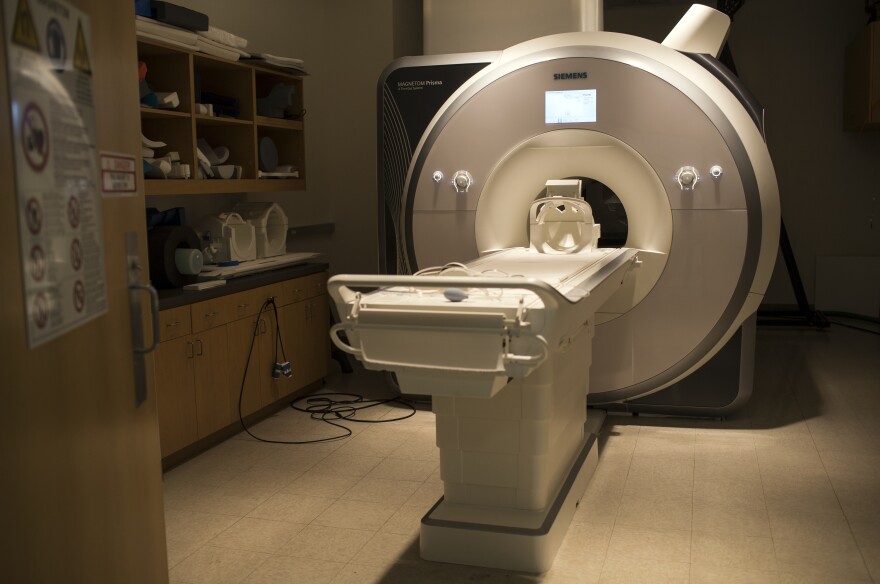This archival content was originally written for and published on KPCC.org. Keep in mind that links and images may no longer work — and references may be outdated.
USC study continues to provide data on music and brain development

New brain imaging data from researchers at the University of Southern California's Brain and Creativity Institute shows that music training accelerates brain development in children.
"It will take a long time to be absolutely certain of the results, but a little bit to our surprise, strong results began to emerge earlier," said Antonio Damasio, director of the Brain and Creativity Institute, acknowledging that more data and analysis is required.
"There are very strong indications that things are changing under the influence of music."
The study is spending five years following 75 kids – beginning in 2012 when the children were 6 and 7. One group is part of the Los Angeles Philharmonic's Youth Orchestra Los Angeles, some are involved in a soccer program and other kids have with no regular activities. None of the students had music training beforehand.
After one year, researchers noted behavioral changes. The music children were better able to detect differences in pitch and rhythm and better able to memorize a series of numbers. Two years into the study, researchers collected enough neuroimaging data to back up the observations: the electrical activity of the brain showed rapid development of the auditory pathway in the young musicians.
"This pathway is also engaged in other activities that include sound – like speech perception, like language development, like reading skills," said lead researcher Assal Habibi.
"So this maturation that we have seen in the pathway for the music children is an indication that may help them with these other skills that rely on this part of the brain."
These results were published in the journal Developmental Cognitive Neuroscience.
Next, researchers at the Brain and Creativity Institute will study brain imaging data to see how connectivity of different areas of the brain is changing – how the left and the right brain are communicating, for example. They will also examine how social and emotional behavior of the children is changing.
Researchers hope to give weight to the importance of music education in schools.
